
The Wilderness Wonder of Gunflint Trail
Discover the pristine wilderness and rich history of the Gunflint Trail in northeastern Minnesota. Perfect for outdoor enthusiasts and nature lovers, year-round adventures await.
Nestled in the heart of northeastern Minnesota, the Gunflint Trail is a scenic byway that stretches for 57 miles, leading adventurers from the charming town of Grand Marais to the pristine wilderness of the Boundary Waters Canoe Area Wilderness (BWCAW). This historical trail, once a key route for fur traders, now offers visitors a chance to reconnect with nature in a serene and untouched environment. The Gunflint Trail is a haven for outdoor enthusiasts. The area is dotted with crystal-clear lakes, dense forests, and abundant wildlife, making it perfect for activities like canoeing, fishing, hiking, and bird watching. In the winter, the trail transforms into a snowy wonderland, ideal for cross-country skiing, snowshoeing, and snowmobiling. Each season brings a different charm, ensuring there is always something to explore. Aside from its natural beauty, the Gunflint Trail is rich in history. Visitors can explore historic lodges, old logging camps, and even ancient Native American pictographs. The local community is welcoming and offers a variety of accommodations, from cozy cabins to luxurious lodges, providing a comfortable base for your wilderness adventures. Whether you're seeking solitude, adventure, or a combination of both, the Gunflint Trail promises an unforgettable experience.
Local tips in Gunflint Trail
- Bring insect repellent, especially during the summer months, as mosquitoes can be abundant.
- Consider visiting in the fall for stunning foliage and fewer tourists.
- Check the weather forecast and be prepared for sudden changes, as the area can experience variable conditions.
- Make sure to carry a detailed map and compass; cell service can be unreliable in remote areas.
- Book accommodations and permits in advance, especially during peak seasons.
The Wilderness Wonder of Gunflint Trail
Nestled in the heart of northeastern Minnesota, the Gunflint Trail is a scenic byway that stretches for 57 miles, leading adventurers from the charming town of Grand Marais to the pristine wilderness of the Boundary Waters Canoe Area Wilderness (BWCAW). This historical trail, once a key route for fur traders, now offers visitors a chance to reconnect with nature in a serene and untouched environment. The Gunflint Trail is a haven for outdoor enthusiasts. The area is dotted with crystal-clear lakes, dense forests, and abundant wildlife, making it perfect for activities like canoeing, fishing, hiking, and bird watching. In the winter, the trail transforms into a snowy wonderland, ideal for cross-country skiing, snowshoeing, and snowmobiling. Each season brings a different charm, ensuring there is always something to explore. Aside from its natural beauty, the Gunflint Trail is rich in history. Visitors can explore historic lodges, old logging camps, and even ancient Native American pictographs. The local community is welcoming and offers a variety of accommodations, from cozy cabins to luxurious lodges, providing a comfortable base for your wilderness adventures. Whether you're seeking solitude, adventure, or a combination of both, the Gunflint Trail promises an unforgettable experience.
When is the best time to go to Gunflint Trail?
Unmissable attractions to see
Gunflint Lodge & Outfitters
Discover the beauty of Minnesota at Gunflint Lodge & Outfitters, your ultimate destination for adventure, relaxation, and outdoor fun.

Grand Marais Lighthouse
Explore the Grand Marais Lighthouse, a historic gem on Lake Superior, offering breathtaking views and a glimpse into Minnesota's maritime heritage.
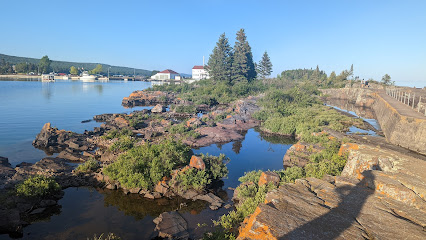
Chik-Wauk Museum and Nature Center
Explore the rich history and stunning nature at Chik-Wauk Museum and Nature Center, a must-visit destination in Grand Marais, Minnesota.
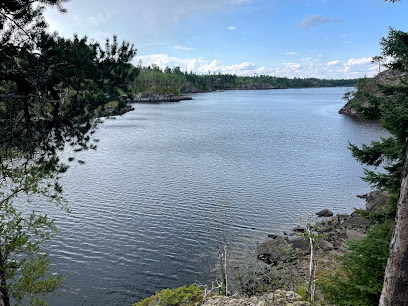
Harbor Park
Discover the serene beauty of Harbor Park in Grand Marais, Minnesota, where stunning waterfront views and charming local shops await every traveler.
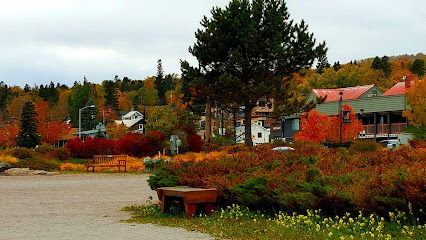
Magnetic Rock
Explore the stunning Magnetic Rock in Grand Marais, MN, a unique hiking area known for its beautiful landscapes and fascinating magnetic properties.
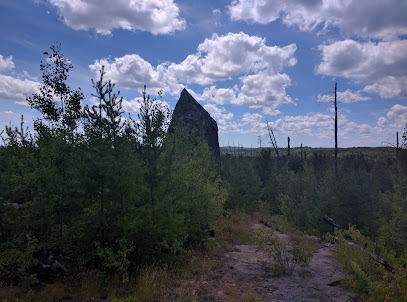
George Washington Pines
Experience the serene beauty of George Washington Pines, a top hiking destination in Minnesota's stunning Gunflint Trail wilderness.
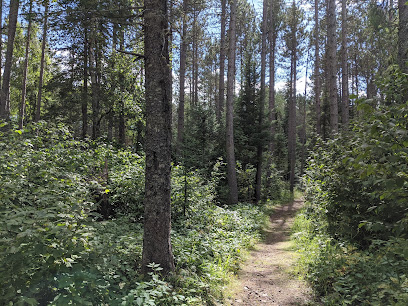
Moose Viewing Trailhead
Explore the Moose Viewing Trailhead on the Gunflint Trail for an unforgettable experience surrounded by nature and wildlife in Minnesota's pristine wilderness.
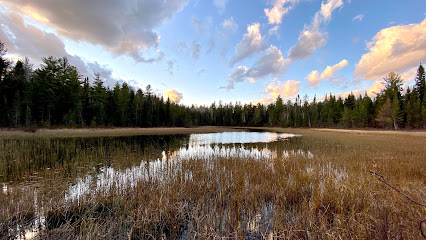
Gunflint Trail Historical Society
Explore the Gunflint Trail Historical Society for an insightful journey into Minnesota's rich cultural and natural history.
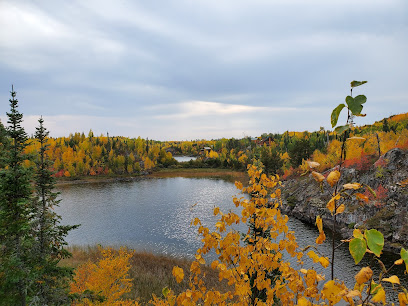
Magnetic Rock Trail/BRT West Trailhead
Explore the breathtaking Magnetic Rock Trail in Grand Marais, MN – a hiking paradise with unique geological features and stunning natural beauty.
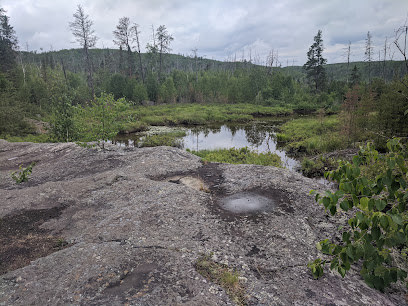
Historic Cook County (MN)
Immerse yourself in the captivating history of Cook County at the Historic Cook County Museum in Grand Marais, Minnesota.
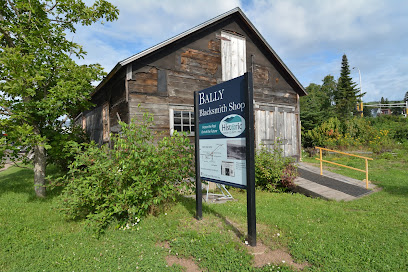
Bridal Falls
Explore Bridal Falls in Grand Marais, MN – a breathtaking waterfall surrounded by lush nature, perfect for hiking, photography, and peaceful retreats.
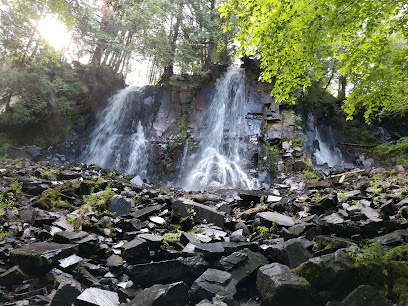
Gunflint Trail National Scenic Byway
Discover the stunning landscapes and outdoor adventures along the Gunflint Trail National Scenic Byway, a true gem of Minnesota's wilderness.
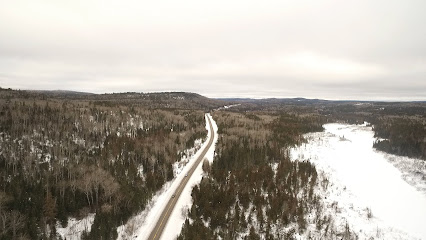
Northern Light Lake Overlook Trailhead
Discover the serene beauty of Northern Light Lake Overlook Trailhead, a perfect hiking destination in Grand Marais, Minnesota, for nature lovers and outdoor enthusiasts.
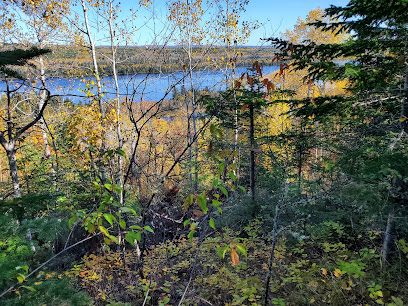
Caribou Rock Trail Trailhead
Explore Caribou Rock Trail in Grand Marais, MN - a breathtaking hiking destination with stunning views and diverse wildlife.
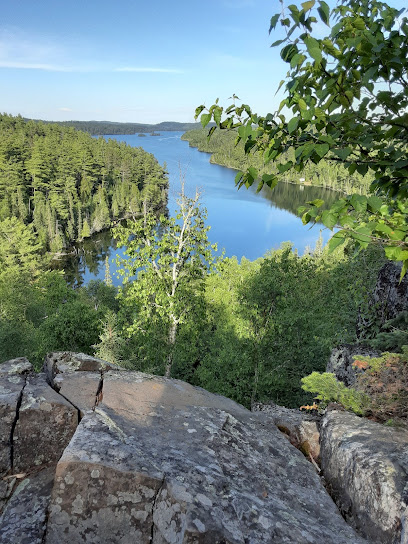
Rose Falls
Experience the breathtaking beauty of Rose Falls in Grand Marais, Minnesota—a serene escape into nature's splendor.
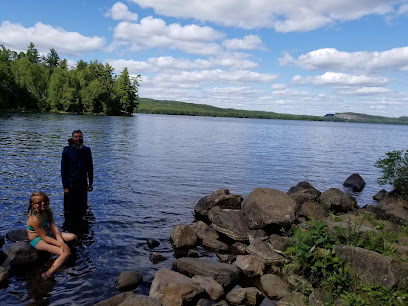
Essential places to dine
Gun Flint Tavern
Experience the best of local flavors at Gun Flint Tavern in Grand Marais—where great food meets a vibrant atmosphere.
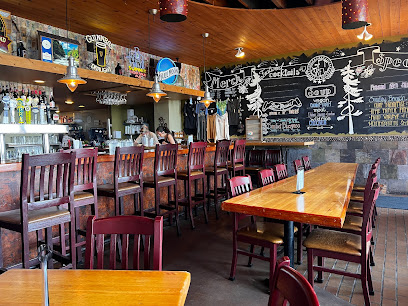
Gunflint Lodge & Outfitters
Discover adventure and relaxation at Gunflint Lodge & Outfitters—your gateway to Minnesota's breathtaking wilderness.

Trail Center At Poplar Lake
Discover rustic dining and cozy lodging at Trail Center At Poplar Lake amidst Minnesota's breathtaking wilderness.
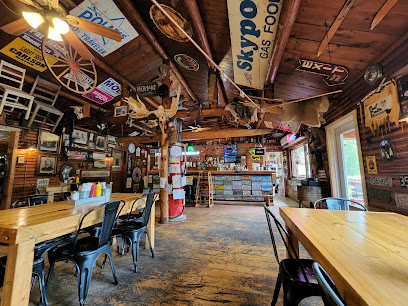
Poplar Haus Restaurant, Bar & Cabins
Experience the best of North Woods dining at Poplar Haus Restaurant & Cabins—where rustic charm meets exquisite grill cuisine.
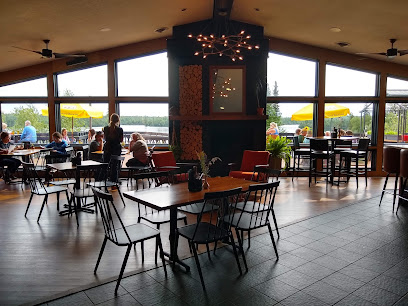
Subway
Enjoy fresh and customizable sandwiches at Subway in Grand Marais—your quick stop for delicious meals while exploring Minnesota's North Shore.
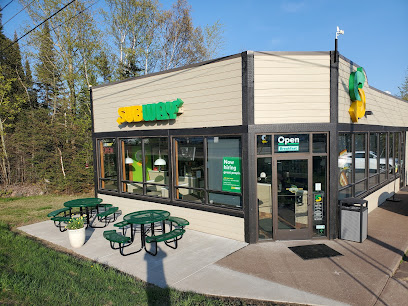
Markets, malls and hidden boutiques
Lake Superior Trading Post
Explore Lake Superior Trading Post, your ultimate destination for unique gifts, outdoor gear, and local treasures in Grand Marais, Minnesota.
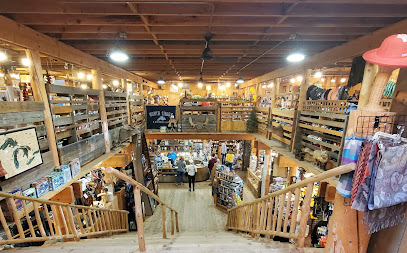
Cook County Co-op
Discover the flavors of Grand Marais at the Cook County Co-op, offering fresh groceries, organic products, and delicious deli meals.
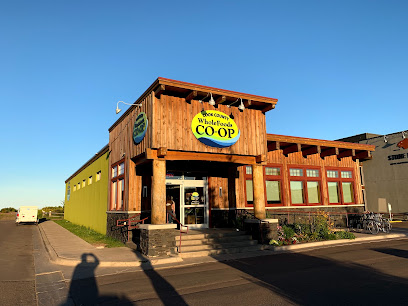
Voyageur Canoe Outfitters
Discover the beauty of Minnesota's wilderness with canoe and kayak rentals, camping gear, and cozy accommodations at Voyageur Canoe Outfitters.
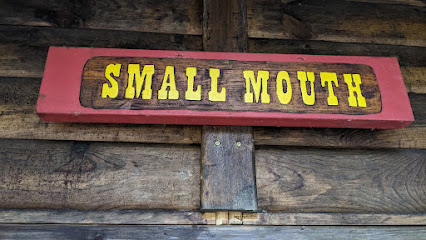
Joynes Ben Franklin
Explore Joynes Ben Franklin in Grand Marais, where unique gifts and outdoor gear meet the charm of Minnesota's North Shore.
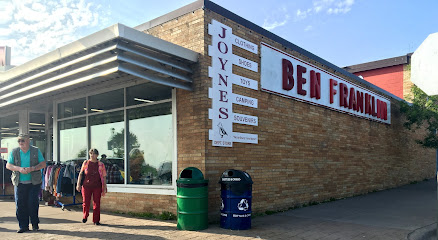
Stone Harbor Wilderness Supply
Your ultimate outdoor adventure starts at Stone Harbor Wilderness Supply, where quality gear meets expert advice in Grand Marais, Minnesota.
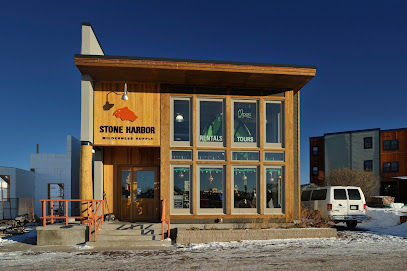
Drury Lane Books
Discover the literary gem of Grand Marais at Drury Lane Books, where every page turns into an adventure in a cozy, welcoming atmosphere.
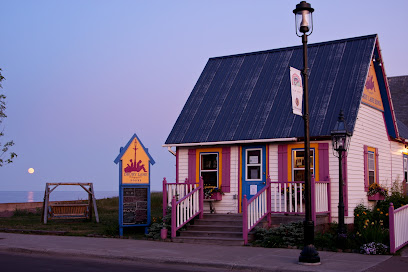
Beth's Fudge & Gifts
Discover the sweet charm of Beth's Fudge & Gifts in Grand Marais, where homemade fudge and unique gifts await every visitor.
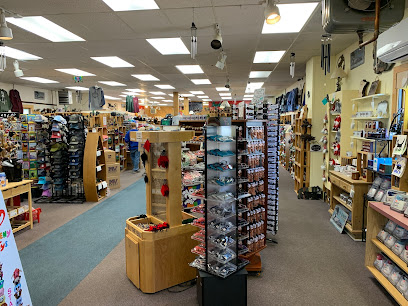
Seagull Outfitters & Cabins
Experience nature's beauty at Seagull Outfitters & Cabins, a premier canoe and kayak rental service nestled in Minnesota's stunning wilderness.
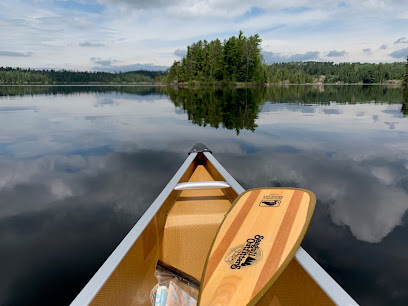
Sivertson Gallery
Explore the artistic treasures of Sivertson Gallery, a premier destination for local art, jewelry, and prints in Grand Marais, Minnesota.
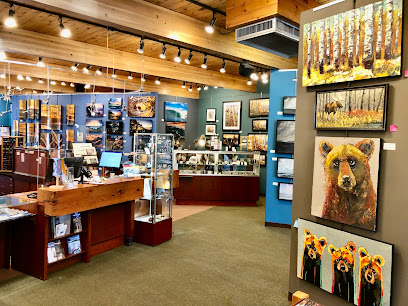
Joy & Company
Explore Joy & Company in Grand Marais for unique antiques, art supplies, vintage clothing, and local artistry that captures the spirit of Minnesota.
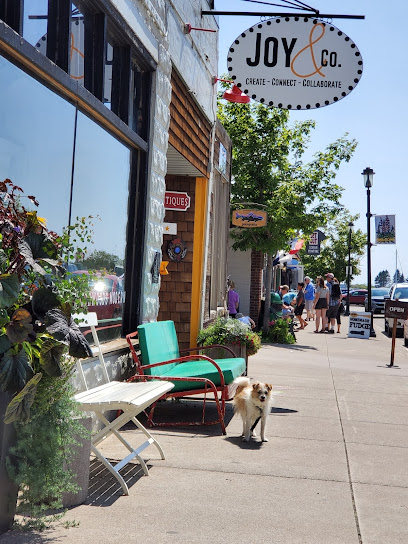
Beaver House Inc
Discover Beaver House Inc, the ultimate fishing store in Grand Marais, MN, where expert advice meets quality gear amidst stunning natural beauty.
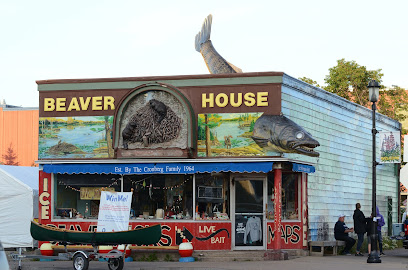
Fly Box And Company
Explore Fly Box And Company in Grand Marais, MN - Your go-to destination for all fishing needs and expert local advice.
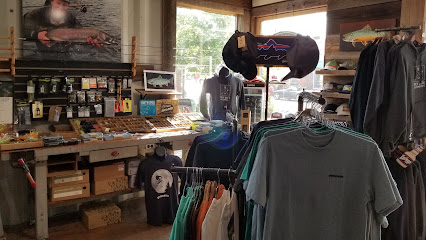
Upstate MN
Explore Upstate MN in Grand Marais for unique gifts and local treasures that capture the spirit of Minnesota.
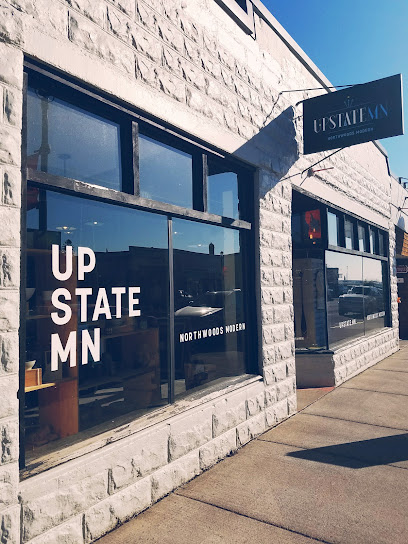
Dappled Fern Fibers
Explore the vibrant world of fibers and creativity at Dappled Fern Fibers, a unique yarn store and gift shop in Grand Marais, Minnesota.
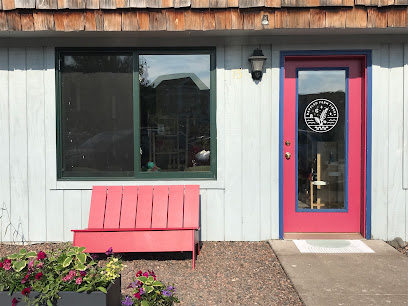
Moose Tracks
Discover unique clothing and local apparel at Moose Tracks in Grand Marais, Minnesota, reflecting the spirit of the North Shore.
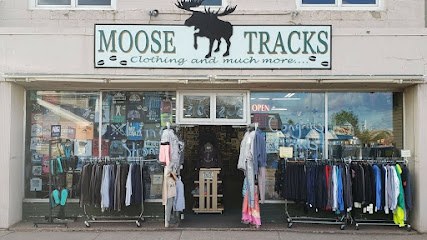
Essential bars & hidden hideouts
Angry Trout Cafe
Experience the best of Grand Marais dining at Angry Trout Cafe, a local gem known for fresh seafood and delicious breakfasts with stunning views.
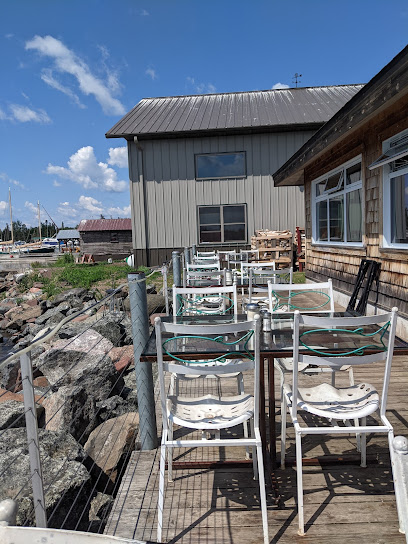
My Sister's Place
Discover the heart of American dining at My Sister's Place, a charming restaurant in Grand Marais serving eclectic dishes in a cozy atmosphere.
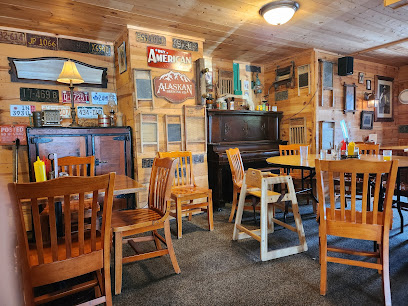
Gun Flint Tavern
Immerse yourself in local flavors and brews at Gun Flint Tavern, a vibrant gathering place in Grand Marais, Minnesota.
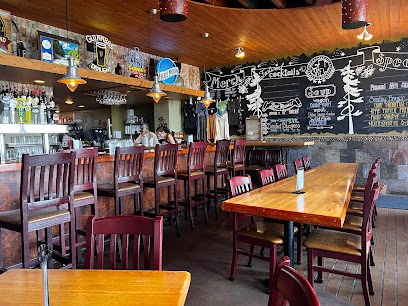
Sven & Ole's
Discover the best pizza in Grand Marais at Sven & Ole's, a local favorite with a cozy atmosphere and delicious flavors.
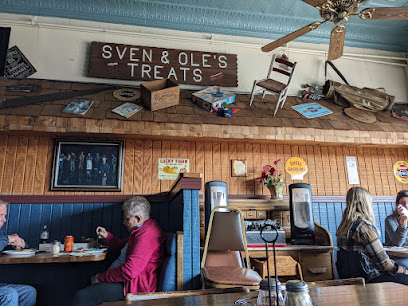
Blue Water Cafe
Experience the charm and flavors of Blue Water Cafe in Grand Marais, where delicious American cuisine meets cozy ambiance.
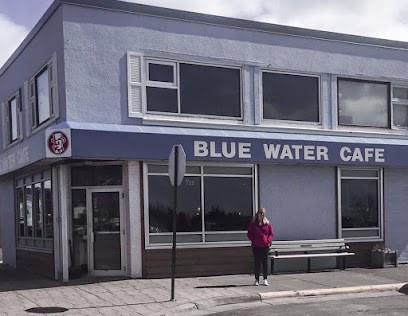
Java Moose Espresso Cafe
Experience the best coffee in Grand Marais at Java Moose Espresso Cafe, a cozy spot with free Wi-Fi and local charm.
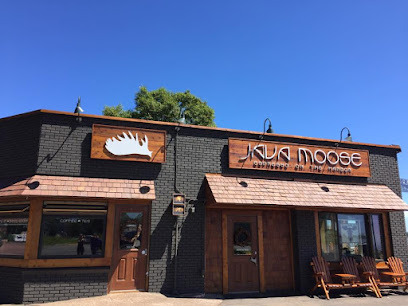
The Fisherman's Daughter at Dockside Fish Market
Experience the best fish and chips and local flavors at The Fisherman's Daughter in Grand Marais, a seafood lover's paradise.
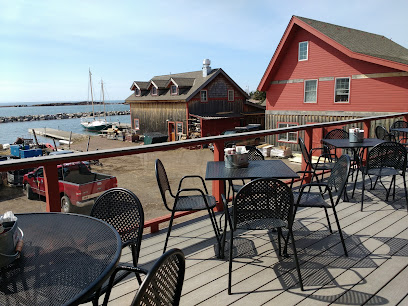
Voyageur Brewing Company
Discover the essence of craft brewing at Voyageur Brewing Company in Grand Marais, where stunning views and delicious brews await.
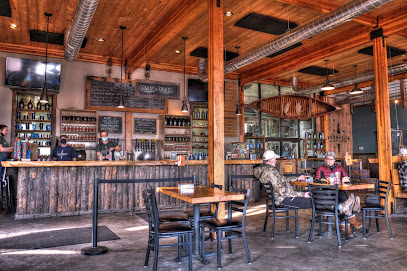
Gunflint Lodge & Outfitters
Discover Gunflint Lodge & Outfitters: A haven for adventurers and nature lovers in Minnesota's breathtaking wilderness.

Hungry Hippie Tacos
Discover the vibrant flavors of Hungry Hippie Tacos, a taco haven in Grand Marais, Minnesota, known for fresh ingredients and unique creations.
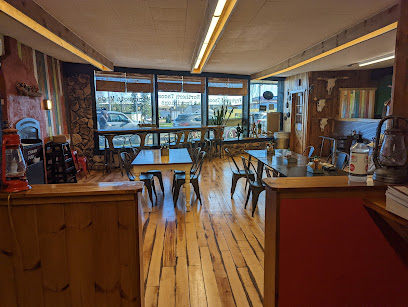
Trail Center At Poplar Lake
Experience the perfect blend of nature and cuisine at Trail Center, your go-to restaurant and lodging near Poplar Lake, Minnesota.
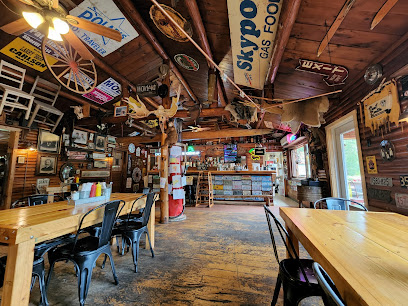
Poplar Haus Restaurant, Bar & Cabins
Discover the rustic charm and delightful flavors at Poplar Haus Restaurant, Bar & Cabins in Grand Marais, MN.
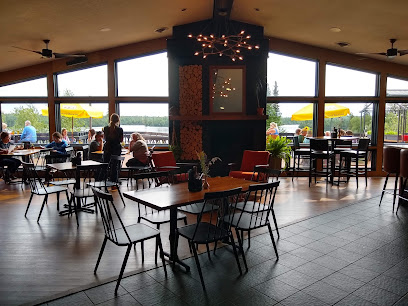
South of the Border Cafe
Experience the charm of South of the Border Cafe, where delicious breakfast and American classics await in Grand Marais, Minnesota.
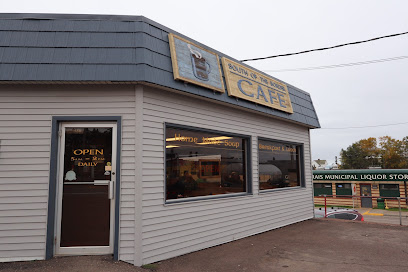
Hungry Jack Lodge & Campground
Discover the perfect blend of comfort and adventure at Hungry Jack Lodge & Campground, your gateway to Minnesota's stunning wilderness.

Skyport Lodge & Raven Rock Grill
Experience the best of Grand Marais at Skyport Lodge & Raven Rock Grill, where rustic charm meets delicious local cuisine in a stunning lakeside setting.
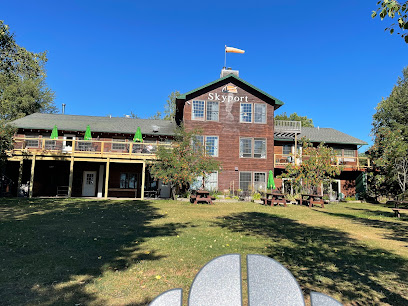
Local Phrases about Gunflint Trail
-
- HelloBoozhoo
[Boo-zhoo] - GoodbyeMiigwech
[Mee-gwetch] - YesEya
[Aye-ya] - NoAaniin
[Ah-nee] - Please/You're welcomeBaamaapii
[Bah-mah-pee] - Thank youMiigwech
[Mee-gwetch] - Excuse me/SorryMiigwech
[Mee-gwetch] - How are you?Aaniin ezhi-ayaayan
[Ah-nee e-zhee-a-ya-yaan] - Fine. And you?Miigwech. Ayaayan?
[Mee-gwetch. A-ya-yaan?] - Do you speak English?Aaniin ezhi-ayaayan gaa-izhiwebziwin?
[Ah-nee e-zhee-a-ya-yaan ga-ee-zhee-weh-bzi-win?] - I don't understandAaniin ezhi-nendam
[Ah-nee e-zhee-nen-dam]
- HelloBoozhoo
-
- I'd like to see the menu, pleaseMiinawaa menu onji
[Mee-na-waa menu on-jee] - I don't eat meatGii-ayaad menomen
[Gee-ah-yaad me-no-men] - Cheers!Boozhoo!
[Boo-zhoo] - I would like to pay, pleaseMiinawaa dibishkoo onji
[Mee-na-waa dee-bish-koo on-jee]
- I'd like to see the menu, pleaseMiinawaa menu onji
-
- Help!Gaa-waab
[Gaa-waab] - Go away!Gaa wiin
[Gaa ween] - Call the Police!Gaa-aanishinaabe-aadizookaan
[Gaa-ah-nee-she-nah-bay-aa-dee-zoh-kaan] - Call a doctor!Gaa-inendam
[Gaa-ee-nen-dam] - I'm lostNiwiid gii-zaagidi
[Nee-weed gee-zah-gi-dee] - I'm illNiwiid gii-bakade
[Nee-weed gee-bah-kah-day]
- Help!Gaa-waab
-
- I'd like to buy...Miinawaa gii-bakade
[Mee-na-waa gee-bah-kah-day] - I'm just lookingNiwiid gii-ninendam
[Nee-weed gee-ni-nen-dam] - How much is it?Gii-ayaa gaa-piichi
[Gee-ah-yaa gaa-pee-chee] - That's too expensiveWaaseya gii-ayaa
[Wah-seh-yah gee-ah-yaa] - Can you lower the price?Gii-ayaa gii-bekade
[Gee-ah-yaa gee-bay-kah-day]
- I'd like to buy...Miinawaa gii-bakade
-
- What time is it?Maajii wiin
[Mah-zhee ween] - It's one o'clockWiin gaa-onji
[Ween gaa-on-jee] - Half past (10)Makak gaa-wiijiiwan
[Mah-kahk gaa-wee-zhee-wan] - MorningWaaban
[Wah-bahn] - AfternoonNiizhwaaswi
[Nee-zhwah-swee] - EveningBiidaaban
[Bee-dah-bahn] - YesterdayNiizhwaaswi
[Nee-zhwah-swee] - TodayBiidaaban
[Bee-dah-bahn] - TomorrowWaaban
[Wah-bahn] - 1Bakade
[Bah-kah-day] - 2Niizh
[Neezh] - 3Niswed
[Nis-wed] - 4Niiwin
[Nee-win] - 5Naanan
[Naa-nan] - 6Niizhwaaswi
[Nee-zhwah-swee] - 7Niizhwaaswi
[Nee-zhwah-swee] - 8Niizhwaaswi
[Nee-zhwah-swee] - 9Niizhwaaswi
[Nee-zhwah-swee] - 10Niizhwaaswi
[Nee-zhwah-swee]
- What time is it?Maajii wiin
-
- Where's a/the...?Eya gaa
[Aye-ya gaa] - What's the address?Eya gaa-endaayaan
[Aye-ya gaa-en-daa-yaan] - Can you show me (on the map)?Gii-aya gaa-jaagishiimin?
[Gee-ah-yaa gaa-jaa-gish-ee-meen] - When's the next (bus)?Eya gaa-biwaasi
[Aye-ya gaa-bee-waa-see] - A ticket (to ....)Gaa-biwaasi miinawaa
[Gaa-bee-waa-see mee-na-waa]
- Where's a/the...?Eya gaa
History of Gunflint Trail
-
Long before European settlers arrived, the Gunflint Trail area was home to the Ojibwe people, part of the Anishinaabe nation. They thrived in this region, utilizing its rich natural resources for hunting, fishing, and gathering. The Ojibwe left a significant cultural imprint on the area, evidenced by ancient artifacts and oral histories that still resonate today.
-
During the late 17th and 18th centuries, the Gunflint Trail became a vital route for French-Canadian voyageurs engaged in the fur trade. These hardy men navigated the waterways in birchbark canoes, establishing trading posts and interacting with the Native American tribes. The fur trade era brought significant economic and cultural exchanges to the region.
-
In the mid-19th century, geologists discovered rich deposits of iron ore along the Gunflint Trail. This discovery led to sporadic mining endeavors in the late 1800s and early 1900s. Although large-scale mining never fully developed, the Gunflint Iron Formation remains a geological marvel, attracting researchers and rock enthusiasts.
-
One of the most devastating events in the history of the Gunflint Trail was the forest fire of 1910. This catastrophic blaze, part of a series of wildfires that swept across northern Minnesota, consumed thousands of acres of forest. The fire reshaped the landscape and had lasting effects on the local ecosystem and communities.
-
By the early 20th century, the natural beauty of the Gunflint Trail began to attract tourists. The construction of rustic lodges and cabins catered to outdoor enthusiasts seeking fishing, hunting, and hiking adventures. This period marked the beginning of the area's transformation into a popular recreational destination.
-
In 1978, the U.S. Congress passed the Boundary Waters Canoe Area Wilderness (BWCAW) Act, a landmark piece of legislation that significantly impacted the Gunflint Trail. The act designated over a million acres of pristine wilderness, including the Gunflint Trail area, for preservation and recreation, ensuring the protection of its natural beauty for future generations.
-
Efforts to preserve the cultural heritage of the Gunflint Trail have been ongoing. Local museums and historical societies work diligently to document and share the rich history of the area. Initiatives include restoring historical sites, archiving stories, and educating the public about the diverse cultures that have shaped the region.
Gunflint Trail Essentials
-
The Gunflint Trail is located in northeastern Minnesota, United States. The nearest major town is Grand Marais, which is roughly 110 miles northeast of Duluth, Minnesota. To get there, you can fly into the Duluth International Airport (DLH) and then rent a car to drive up the scenic North Shore of Lake Superior via Highway 61 to Grand Marais. From Grand Marais, the Gunflint Trail (County Road 12) begins and stretches for about 57 miles northwest into the wilderness.
-
Transportation options are limited along the Gunflint Trail. Renting a car is highly recommended as it allows you the freedom to explore the area at your own pace. There is no public transportation available on the Gunflint Trail. For those interested in guided tours or specific activities, some lodges and outfitters offer shuttle services.
-
The official currency is the United States Dollar (USD). Credit cards are widely accepted, but it's advisable to carry some cash, particularly for smaller establishments or in more remote areas where card readers might not be available. ATMs can be found in Grand Marais, but they are scarce along the trail itself, so plan accordingly.
-
The Gunflint Trail is generally a safe destination with low crime rates. However, it's important to stay vigilant, especially when hiking or camping in the wilderness. Keep your valuables secure and be cautious of wildlife. There are no specific areas with high crime rates targeting tourists.
-
In case of emergency, dial 911 for immediate assistance. The nearest hospital is in Grand Marais, which also has a clinic for non-emergency medical issues. It's advisable to carry a basic first aid kit and ensure you have travel insurance that covers medical emergencies. Cell phone service can be spotty in remote areas, so having a satellite phone or other communication device is recommended for backcountry activities.
-
Fashion: Do dress in layers and wear appropriate outdoor clothing, including sturdy hiking boots. Don't wear high heels or flip-flops while hiking. Religion: There are no specific religious customs to observe, but always respect the natural environment and any local cultural sites. Public Transport: There is no public transport, so plan to rent a car or use local shuttles offered by lodges. Greetings: Do greet others with a friendly nod or wave. Locals are generally welcoming and friendly. Eating & Drinking: Do try local cuisine and visit local restaurants. Don't leave food unattended in campsites as it can attract wildlife.
-
To experience the Gunflint Trail like a local, engage in activities such as fishing, canoeing, and hiking. Visit local outfitters for gear and advice on the best spots. Attend local events or festivals in Grand Marais if your visit coincides with them. Take time to explore the Boundary Waters Canoe Area Wilderness (BWCAW) for a unique and tranquil wilderness experience. Always practice Leave No Trace principles to preserve the natural beauty of the area.
Nearby Cities to Gunflint Trail
-
Things To Do in Ely
-
Things To Do in Duluth
-
Things To Do in Marquette
-
Things To Do in Wausau
-
Things To Do in Eau Claire
-
Things To Do in Saint Cloud
-
Things To Do in Saint Paul
-
Things To Do in Minneapolis
-
Things To Do in Door County
-
Things To Do in Grand Forks
-
Things To Do in Sturgeon Bay
-
Things To Do in Winona
-
Things To Do in Green Bay
-
Things To Do in Fargo
-
Things To Do in Appleton







